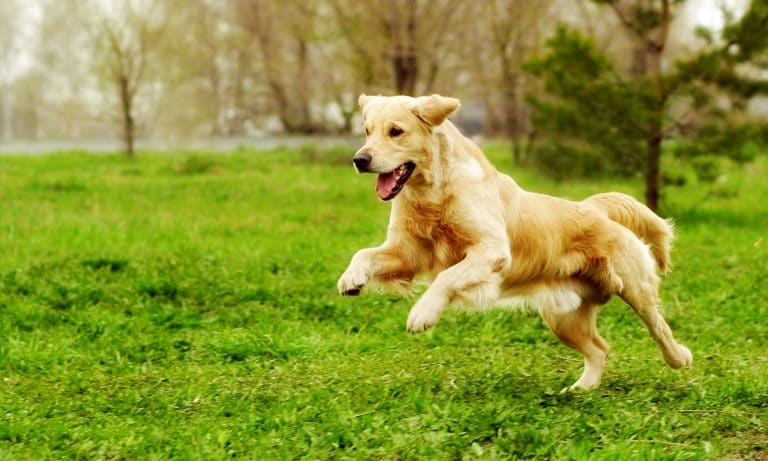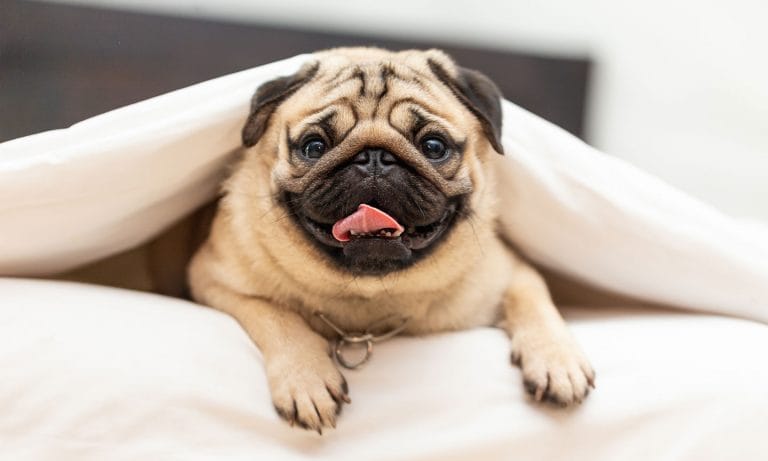Golden Retriever vs Pug

Breed Snapshot
Best For
Golden Retrievers, known for their friendly disposition, thrive on companionship and exercise. Intelligent and adaptable, these loyal dogs make ideal family pets for those who can provide lots of love and mental stimulation.
Golden Retriever Temperament
The Golden Retriever personality is naturally outgoing and eager to please. Although individual personalities can vary, most Goldens love people and social outings, thriving in homes with lively environments. Generally, Goldens are born to mingle and see everyone as a potential new best friend. Whenever they meet someone ne...
The Golden Retriever personality is naturally outgoing and eager to please. Although individual personalities can vary, most Goldens love people and social outings, thriving in homes with lively environments.
Generally, Goldens are born to mingle and see everyone as a potential new best friend. Whenever they meet someone new, they seem to say, “Hi! I am so glad we met. Do you have a ball to throw for me now that we’re friends?”
That friendly demeanor, coupled with their moderate weight and height, make Golden Retrievers excellent dogs for families with young children. However, not all Goldens are without challenges. When bringing a Golden home, cautiously introduce them to household members, especially smaller ones like children and cats, and be sure to teach small children how to behave and interact with dogs as well.
Goldens are also intelligent; they’re quick learners and easy to train. They were and are bred to be gundogs, retrieving waterfowl with their soft mouths, a characteristic that allows them to carry delicate items without applying excessive pressure. They often serve as guide dogs, therapy dogs and search-and-rescue dogs. For optimal health, Golden Retrievers need ample mental and physical exercise.
Keep in mind, though, that even the best-trained Goldens can be mischievous. So be prepared for occasional capers and learn to laugh with your dog as they “help” you unload the laundry basket.
Golden Retriever Traits

Breed Snapshot
Best For
Pugs are quirky, affectionate companions. Their coat may be low-maintenance, but their personality is decidedly not—they crave attention, making them perfect for cuddlers seeking a lively, adaptable friend.
Pug Temperament
Simply put, Pugs are incredibly friendly dogs. They thrive on attention and can get pretty worked up and excited if fun things are happening. These are amiable little dogs who want to participate in your activities, too. Pugs prefer friends over foes, and they’re not prone to bite (the...
Simply put, Pugs are incredibly friendly dogs. They thrive on attention and can get pretty worked up and excited if fun things are happening. These are amiable little dogs who want to participate in your activities, too. Pugs prefer friends over foes, and they’re not prone to bite (their jaw shape minimizes the effectiveness of their bite).
Pugs with kids and babies are often a great combination since Pugs are fun and enjoy playtime. However, the Pug’s eyes are at risk for injury (since they slightly stick out), so children need to learn early on that their pet’s face is vulnerable, and they must take care while playing with the dog.
A Pug’s personality is playful and charming but in a somewhat regal and controlled manner. They’re enjoyable dogs to be around, and hopefully, you don’t mind the occasional snore.
Finally, when it comes to a career, Pugs may have the best job in the world: being a companion to their loving family. They are average barkers (not too quiet, not too much) and make fairly good watchdogs, too.




